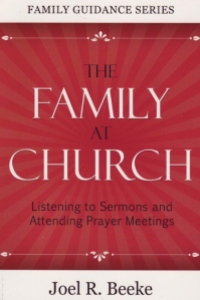 The following is a summary of the chapter “Receiving the preached Word” (used with permission)
The following is a summary of the chapter “Receiving the preached Word” (used with permission)
The Word of God must engage both the minister and the listener. Growth cannot take place if the listener does not profit from the Word. That reception involves, as the Westminster divines put it, that ”those that hear the word preached
1. Listen with an understanding, tender conscience. Jesus’ parable of the sower (Matthew 13:3–23; Mark 4:1–20; Luke 8:4–15) presents us with four types of listeners, all of whom hear the same word:
- The stony-hearted, superficial listener
- The easily impressed but resistant listener
- The half-hearted, distracted listener
- The understanding, fruitful listener.
2. Listen attentively to the preached Word. Luke 19:48 describes people who were very attentive to Christ. Literally translated, the text says, “They hung upon him, hearing.” Lydia showed such an open heart when she “attended” or “turned her mind” to the things spoken by Paul (Acts 16:14). Such attentiveness involves banishing wandering thoughts, dullness of mind, and drowsiness (Matthew 13:25). It regards a sermon as a matter of life and death (Deuteronomy 32:47).
3. Listen with submissive faith. As James 1:21 says, “Receive with meekness the engrafted word.” This kind of meekness involves a submissive frame of heart, “a willingness to hear the counsels and reproofs of the word.” Through this kind
of faith, the Word is engrafted into the soul and produces “the sweet fruit of righteousness.” Faith is the key to profitably receiving the Word. Luther wrote, ”Faith is not an achievement, it is a gift. Yet it comes only through the hearing and study of the Word.”
4. Listen with humility and serious self-examination. Do I humbly examine myself under the preaching of God’s Word, trembling at its impact (Isaiah 66:2)? Do I cultivate a meek and submissive spirit, receiving God’s truth as a student while being intimately aware of my own depravity? Do I seriously examine myself under preaching, listening for my own instruction rather than for the instruction of others? We must not respond like Peter who said to Jesus, ”Lord, and what shall this man do?” We must listen to Jesus’ admonition: “What is that to thee? follow thou me” (John 21:21–22).

Leave A Comment